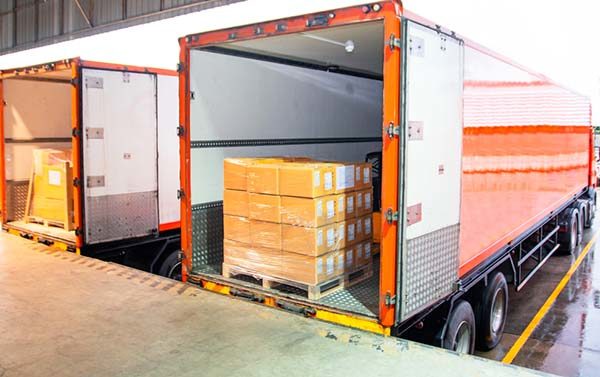Getting a better handle on LTL
Flow Control Group partnered with Redwood Logistics to improve its less-than-truckload freight management process—and got the program up and running in no time.

When leaders at Flow Control Group (FCG) needed a better way to manage their multilocation less-than-truckload (LTL) shipments, they turned to supply chain and logistics services provider Redwood Logistics and its flexible freight management solutions to get the job done.
FCG provides products and services for industrial flow control and fluid-handling operations, serving customers in the industrial, chemical processing, food and beverage, and energy markets. With 70 companies under the FCG umbrella and more than 150 locations across the U.S. and Canada, the company was looking for a logistics partner that could help keep products moving out the door quickly while also keeping freight costs in check. Redwood’s automated logistics solutions would help with LTL procurement, shipment planning, and reporting while also providing greater visibility into FCG’s transportation and freight operations.
“At Redwood, we pride ourselves on providing our customers with clarity and visibility of their transportation data, all in one place. This creates a streamlined and more effective supply chain capable of meeting increased customer demand by making LTL capacity easier and cheaper to book,” Christina Ryan, Redwood’s executive vice president for managed services, said in a statement describing the FCG project. “Clients like FCG who have really complex systems in place can immediately benefit and recognize savings across their transportation spend with our flexible freight management solutions.”
STREAMLINING THE PROCESS
FCG implemented Redwood Logistics’ LTL solution in November 2021 and saw immediate improvements, according to Dwayne DeHaven, FCG’s vice president of corporate operations. The technology-based solution provides a combination of cost-savings programs, audit and payment solutions, and customization options designed to fit a business’s particular needs. One of the greatest benefits to FCG was switching from a multipronged approach to managing LTL across its locations to using a single execution platform. Prior to working with Redwood, FCG locations took multiple approaches to rating, bill-of-lading creation, and tracking, for instance. The new format eliminates that siloed approach, allowing FCG to aggregate data across all locations for better visibility and continuous improvement. Cost savings immediately added up as well. FCG is saving more than 20% annually on LTL spending with the new system, according to both companies.
All of that came on top of a seamless implementation process marked by open communication and a sense of partnership—factors that are invaluable when getting a new system up and running, according to DeHaven.
“Redwood’s team worked calmly and professionally with ours, making sure we all understood the new LTL system, and fixed problems on the spot. There was no ‘We’ll get back to you in two weeks.’ They had solutions at the ready for a smooth and effective implementation process,” DeHaven explained. “I’ve gone through the LTL implementation process before, and if you don’t do it right, it can shut your business down overnight. After all, it’s our lifeline we are talking about.”Related Articles

Copyright ©2024. All Rights ReservedDesign, CMS, Hosting & Web Development :: ePublishing